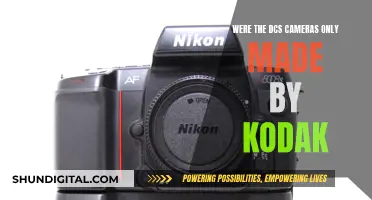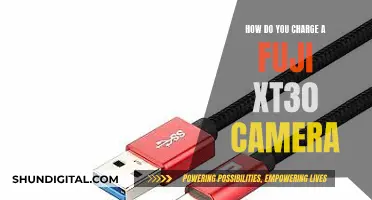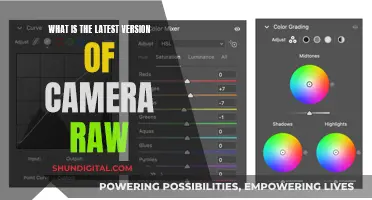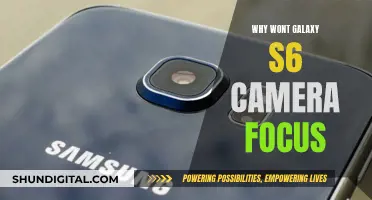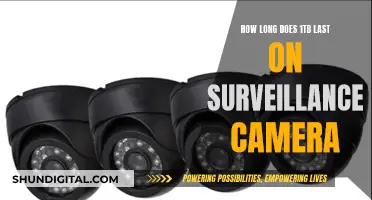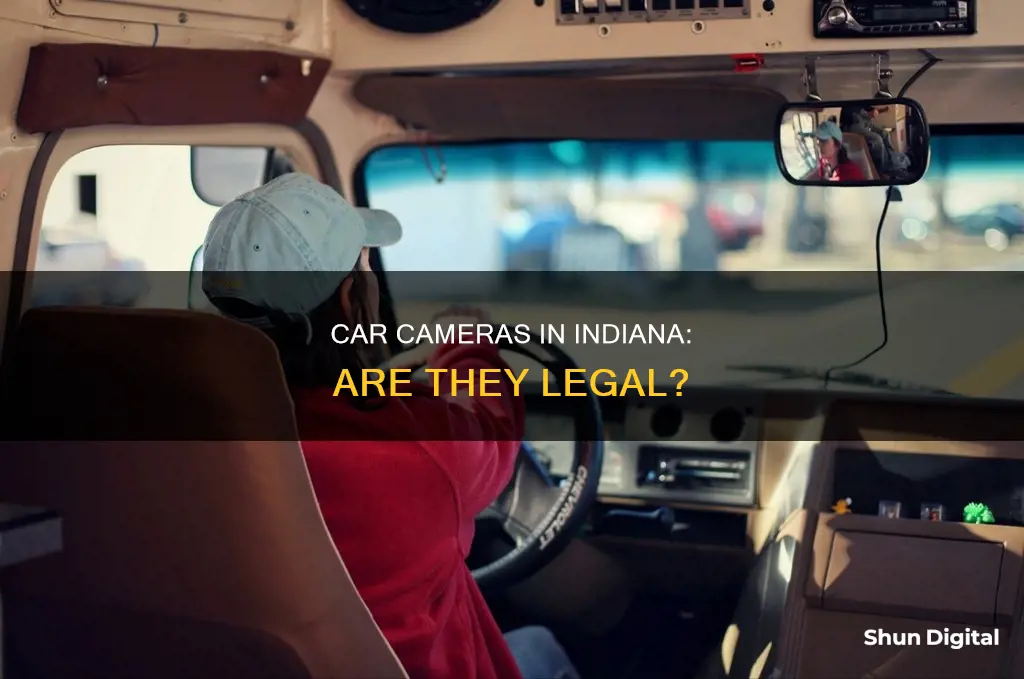
The use of car cameras in Indiana is a complex issue with legal and privacy implications. While the state has implemented unmanned speed enforcement cameras in work zone areas, it does not have red-light cameras or automated cameras for issuing speeding tickets. The use of car cameras by law enforcement and private companies for traffic monitoring and enforcement raises questions about effectiveness, privacy, and legal rights. Indiana's legislation regarding car cameras aims to balance road safety and the protection of citizens' rights, but the topic remains a subject of ongoing discussion and development.
| Characteristics | Values |
|---|---|
| Are car cameras legal in Indiana? | Yes |
| Are there red light cameras in Indiana? | No |
| Are there speed cameras in Indiana? | Yes |
| Are there cameras in work zones in Indiana? | Yes |
| Are there cameras in school zones in Indiana? | Pending legislation |
| Are there toll cameras in Indiana? | Yes |
| Dashcam regulations | Must be no larger than 4 inches and placed in the bottom corner on the passenger side of the windshield |
What You'll Learn

Indiana's new unmanned speed cameras
Indiana has recently introduced a new law that allows for the use of unmanned speed cameras in certain situations. The Indiana Department of Transportation (INDOT) can now operate unmanned speed enforcement cameras in work zone areas on the interstate highway system as part of a pilot program. This is the first time INDOT has been permitted to implement this technology for speed enforcement.
The House Enrolled Act 1015, also known as House Bill 1015, authorizes cameras to capture photos of license plates when a vehicle exceeds the speed limit by at least 11 miles per hour. The registered owner of the vehicle will then receive a ticket by mail. For a first violation, there is only a warning, but a second offense results in a $75 fine, and any additional violations incur a $150 fine. INDOT will work with the State Police Department to manage this program.
This new legislation aims to improve road safety, particularly for construction workers, by reducing vehicle speeds and preventing accidents within highway work zones. INDOT is currently limited to monitoring four worksite speed control locations annually, and these locations must meet specific criteria. Highway construction or maintenance must be taking place, and workers must be present for the speed control systems to be operational. Additionally, INDOT is required to post signs before the entrance to a monitored work zone, providing clear notification to drivers.
While the primary focus of these unmanned speed cameras is on highway safety, there are also privacy considerations. The recorded images and information obtained from the worksite speed control systems are strictly for enforcing traffic offenses. These photos are confidential, owned by the state, and inaccessible to third-party companies. Furthermore, the images must be destroyed after two years.
Disputing DC Camera Tickets: What You Need to Know
You may want to see also

Are red light cameras legal in Indiana?
Indiana recently established a pilot program to implement automated speeding tickets in certain construction zones. This program is the only camera traffic enforcement allowed in the state. Under the program, the Indiana Department of Transportation (INDOT) can monitor up to four construction zones with this technology within a year. The worksite must be a highway with at least two lanes travelling each way, divided by an island or a concrete wall. The system will only be operational when active workers are on-site.
Red light cameras are automated tools used by law enforcement to monitor and enforce traffic laws. They capture images of vehicles that run red lights. While red light cameras are not mentioned in the context of the new Indiana pilot program, they are permitted by state law. These cameras are typically installed at high-traffic intersections, school zones, and areas with a history of accidents or speeding violations.
The use of red light cameras and speed cameras has raised questions about public safety, privacy, and drivers' rights. While these cameras can promote road safety and deter dangerous driving behaviours, some people may have apprehensions about automated camera systems.
Smart Doorbell Camera Options Without Monthly Fees
You may want to see also

How to obtain traffic camera footage after an accident
In Indiana, traffic camera footage can be used as evidence to support a car accident claim. This evidence can be a powerful tool to prove that another driver was at fault, especially if other forms of evidence are unavailable. The footage can provide objective information about the events leading up to and following the accident, including the speed of the vehicles, the actions of the drivers, and any other contributing factors. Additionally, the footage is usually time-stamped, which can help establish the exact time of the accident.
To obtain traffic camera footage after an accident, it is important to act quickly as footage is often only kept for a short period of time. The first step is to identify who owns the camera. In Indiana, cameras may be owned by the local or state police department, the city, or the Indiana Department of Transportation (INDOT). An attorney can help you figure out who is in charge of the camera that recorded your crash.
Once you know who owns the camera, you can submit a request for the footage. In Indiana, the request is likely made under the Access to Public Records Act (APRA). You will need to contact the relevant agency and ask about their specific process for requesting footage. An attorney can help you navigate this process and ensure that your request is submitted correctly.
It is important to note that not all agencies are required to provide footage and your request may be denied. If your request is denied, an attorney can help you issue a subpoena to secure the footage.
In addition to traffic camera footage, other sources of video evidence include security camera footage and dashcam video. If you believe that a private security camera recorded your accident, you will need to contact the owner of the footage directly and request it. An attorney can help you subpoena this footage if necessary.
If you have a dashcam, be sure to use that footage as evidence as well. It is possible that other drivers involved in the accident also have dashcam footage. First responders may also have recordings on dashcams or body cams that could support your claim.
Troubleshooting Galaxy S6 Camera Focus Issues
You may want to see also

Can you appeal a ticket?
In Indiana, you can appeal a ticket by submitting a Notice of Appeal to request another hearing. It is recommended that you consult an attorney before appealing your case.
If you receive a ticket through the mail from an unmanned speed camera, you may be able to appeal it under certain circumstances. For example, if no workers were present at the time, you cannot be ticketed for speeding through an inactive worksite. In this case, you have the option to appeal the fine. Alternatively, if the radar system was not tested or calibrated correctly during the offence, the ticket may be dismissed.
If you receive a traffic ticket in Indiana, you must act quickly. Your ticket will indicate a deadline for action, listed as an "appearance date" or "due date". Make sure you take action before this date to avoid higher fines and more serious consequences. In Indiana, deadlines are usually 60 days after the ticket is issued.
To fight a ticket in Indiana, you can take the following steps:
- Tick the "not guilty" field on the ticket and mail it to the address listed
- Visit the courthouse and inform the clerk that you wish to contest the ticket
- Appear at the courthouse on the court date and inform the judge to secure a hearing date
If you are found guilty, you will be given information on your penalties, which typically include ticket fines, court costs, surcharges, and any other penalties associated with the ticket. You could also face a license suspension if you accrue too many points.
Cinematography's Focus on Death: Camera's Perspective
You may want to see also

Are license plate cameras legal in Indiana?
Indiana has recently established a pilot program to monitor certain construction zones using cameras. The bill, known as House Bill 1015, was signed by Governor Eric Holcomb after receiving bipartisan support. The program aims to improve road safety by reducing vehicle speed in construction zones, creating a safer environment for workers, and reducing the number of accidents.
Under the program, the Indiana Department of Transportation (INDOT) is authorized to operate unmanned speed enforcement cameras in up to four work zone areas on the interstate highway system. These cameras will capture images of license plates when a vehicle surpasses the speed limit by at least 11 miles per hour. A ticket will then be mailed to the address registered to the vehicle. For a first violation, drivers will receive a warning, while subsequent offenses will result in fines of $75 for the second violation and $150 for additional violations.
While this program represents a form of license plate camera usage, the broader question of the legality of license plate cameras in Indiana is more complex. Indiana currently has no laws regulating the use of license plate readers by law enforcement agencies. The Indiana State Police (ISP) have been using license plate scanner technology for over a decade to locate habitual traffic violators, stolen vehicles, missing persons, and individuals driving with suspended licenses. However, there are concerns about the lack of statewide guidelines and the potential for privacy infringements.
The American Civil Liberties Union (ACLU) of Indiana has raised concerns about the indefinite storage and unrestricted sharing of information collected by license plate readers. In the absence of specific laws, critics argue that the technology can be misused and pose risks to Hoosiers' privacy. Nevertheless, Republican legislators have been reluctant to enact policies around this technology, and previous attempts to establish statewide standards have not advanced in the legislature.
In summary, while the use of license plate cameras for speed enforcement in construction zones has been legalized in Indiana through House Bill 1015, the broader use of license plate readers by law enforcement agencies remains unregulated. This lack of regulation has sparked concerns about data privacy and the potential for misuse.
Charging the TG-4: Battery Power for Your Olympus Camera
You may want to see also
Frequently asked questions
Yes, car cameras are legal in Indiana. However, there are specific guidelines for their use and placement.
In Indiana, a car camera must be no larger than 4 inches and placed in the bottom corner on the passenger side of the windshield.
Yes, but it depends on who owns the camera. The relevant agency must be contacted to determine how to make a request.
Yes, car camera footage cannot be used as evidence for anything other than collecting a worksite speed limit penalty.


